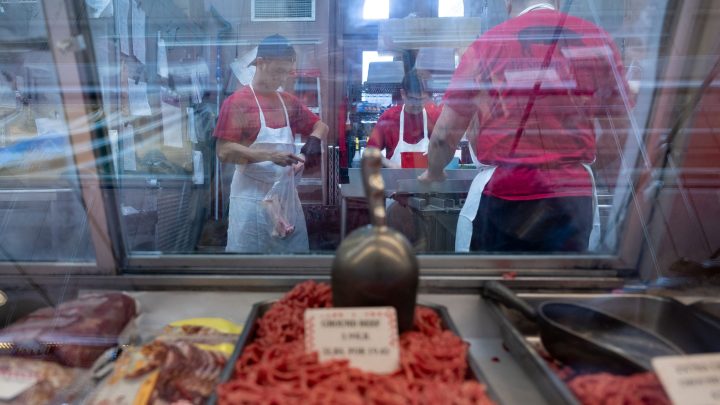
Some small businesses are squeezed between rising costs and customers with other options
Some small businesses are squeezed between rising costs and customers with other options

The Federal Reserve’s latest Beige Book is out with its summary of what the 12 regional Fed banks heard when they talked about the economy with people and businesses in their districts. And one line on prices from the Federal Reserve Bank of Atlanta caught our attention:
“Pricing power was characterized as ‘lumpy,’ with some firms maintaining the ability to pass through costs while others, particularly retailers and restaurants, struggled to preserve margins.”
There’s no formula that tells small businesses what to charge for their stuff.
“A lot of it is art more than it is science,” said Charles Lieberman, chief investment officer for Advisors Capital Management.
He said businesses can look at what their competitors are doing and maybe test out a price increase. But some retailers and restaurants are selling nice-to-haves, not must-haves. So if a restaurant, say, tries to raise prices to cover the increased cost of ingredients, “the buyer, they have the ability to say no, they’re not going to go out to the restaurant,” Lieberman said.
And the way food prices have been going up isn’t straightforward right now. Rick Watson owns Oak Grove Market, a butcher’s shop and deli in Decatur, Georgia. He said in the past, if beef tenderloin was more expensive, marking up the price was no problem.
“But now, you know, it’s kind of a different way things have increased, where it’s like essential ingredients in a lot of our prepared items,” Watson said.
The cost of fry oil, he said, has about doubled since before the pandemic. That affects a lot of items, including french fries. Watson said the margin on them has been cut in half, even though he’s raised the price of fries some. He can’t raise it too much, because he said it’s important that his customers not think his prices for anything are too high.
“I think, you know, one item can kind of have an effect on the way a person looks at your whole store,” he said.
Restaurants and retailers don’t necessarily have to raise prices to protect their profit margins, said Adrienne Slack of the Atlanta Fed. They can also save money by cutting back.
“So that might be fewer servers to provide service, fewer operating hours,” said Slack.
And she said businesses are customers, too, that have leverage with their suppliers.
“You can negotiate, you know, maybe fewer delivery times to your site, or if you are a large volume purchaser, you can absolutely negotiate the price of some of the goods that you’re purchasing,” she said.
Like: “Can we get a better deal on fry oil?”
Other businesses get choosy about what they sell. Jarrett Stieber, the chef and owner of Little Bear in Atlanta, said if he’s going to serve beef, he asks farmers for a cheaper cut of meat, like tongue.
“And a lot of them appreciate being able to move that product, which isn’t the sexy luxury stuff that everybody recognizes and wants to buy,” Stieber said.
There’s a lot happening in the world. Through it all, Marketplace is here for you.
You rely on Marketplace to break down the world’s events and tell you how it affects you in a fact-based, approachable way. We rely on your financial support to keep making that possible.
Your donation today powers the independent journalism that you rely on. For just $5/month, you can help sustain Marketplace so we can keep reporting on the things that matter to you.

















